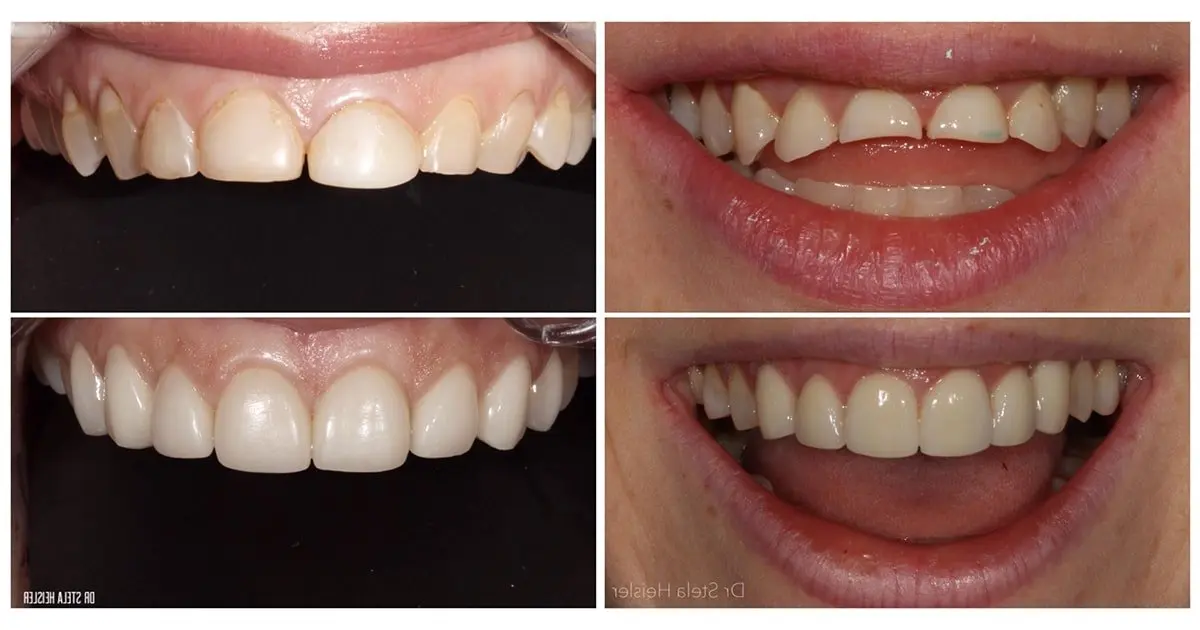Homepage » Dental Care » Prosthodontics – Mouth Rehabilitation » Worn Down Teeth Treatment
Worn Down Teeth (Bruxism - Teeth Grinding) Treatments in Jerusalem
Teeth grinding (bruxism) is a condition where excessive clenching causes friction between upper and lower teeth. This phenomenon affects both adults and children, often occurring involuntarily during sleep. However, it can also manifest during waking hours due to anxiety, stress, mental health challenges, or as a side effect of certain medications.
Tooth wear can also result from high oral acidity, commonly seen in patients with acid reflux or eating disorders involving frequent vomiting. In these cases, the damage comes from acid erosion rather than mechanical friction. Research has also demonstrated links between increased tooth wear and lifestyle factors such as smoking and alcohol consumption, with genetic predisposition playing a possible role.
Why Should Worn Teeth Be Treated?
Continuous tooth wear can lead to multiple complications. The primary concern is mechanical damage to the teeth themselves. This wear can alter tooth shape, compromising chewing ability and potentially leading to temporomandibular joint (TMJ) disorders, tooth fractures, and the need for dental implants or dental crowns.
Additionally, prolonged mechanical friction or acid exposure gradually erodes the protective enamel layer, resulting in increased tooth sensitivity. Advanced wear can impair proper chewing function and affect facial aesthetics. In cases of severe grinding, patients may also experience chronic jaw pain and frequent headaches.
Treatment Options for Worn Teeth in Jerusalem
Our clinic offers various treatment approaches for worn teeth. Schedule a consultation with Dr. Stela Heisler to determine the most suitable solution for your situation. Available treatments include:
A primary treatment option is a custom-fitted night guard, which creates a protective barrier between upper and lower teeth to prevent grinding damage. While this appliance can be worn during sleep or daytime hours depending on when grinding occurs, it addresses the symptoms rather than the underlying cause.
For long-term resolution, patients may benefit from complementary treatments outside dental care, such as medication, physical therapy, or stress management techniques. When grinding stems from anxiety or stress, treatment might include anti-anxiety medications or stress-reduction practices.
In cases where grinding cannot be prevented, restorative procedures may be necessary, including dental crowns, porcelain coating, or composite coating. Contact us to learn more about your treatment options.
Additional dental restoration services available at our clinic:
Replacing Missing Teeth
Minimally Invasive Dentistry Treatments
Dental Crowns
Dentures

